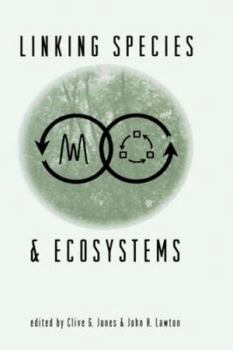Linking Species & Ecosystems
Select Format
Select Condition 
Book Overview
I was asked to introduce this volume by examining "why a knowledge of ecosys- tem functioning can contribute to understanding species activities, dynamics, and assemblages." I have found it surprisingly difficult to address this topic. On the one hand, the answer is very simple and general: because all species live in ecosystems, they are part of and dependent on ecosystem processes. It is impossible to understand the abundance and distribution of populations and the species diversity and composition of communities without a knowledge of their abiotic and biotic environments and of the fluxes of energy and mat- ter through the ecosystems of which they are a part. But everyone knows this. It is what ecology is all about (e.g., Likens, 1992). It is why the discipline has retained its integrity and thrived, despite a sometimes distressing degree of bickering and chauvinism among its various subdisciplines: physiological, be- havioral, population, community, and ecosystem ecology.
Format:Hardcover
Language:English
ISBN:0412048019
ISBN13:9780412048012
Release Date:November 1994
Publisher:Springer
Length:387 Pages
Weight:0.40 lbs.
Dimensions:1.0" x 6.4" x 9.3"
Customer Reviews
0 rating





